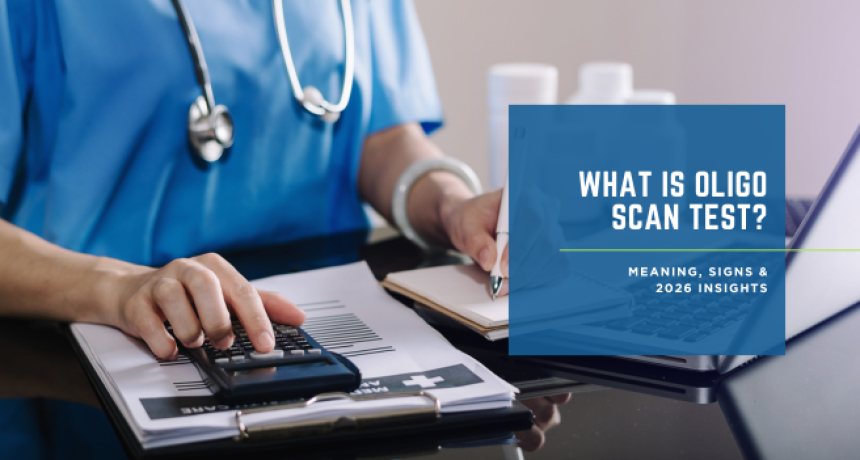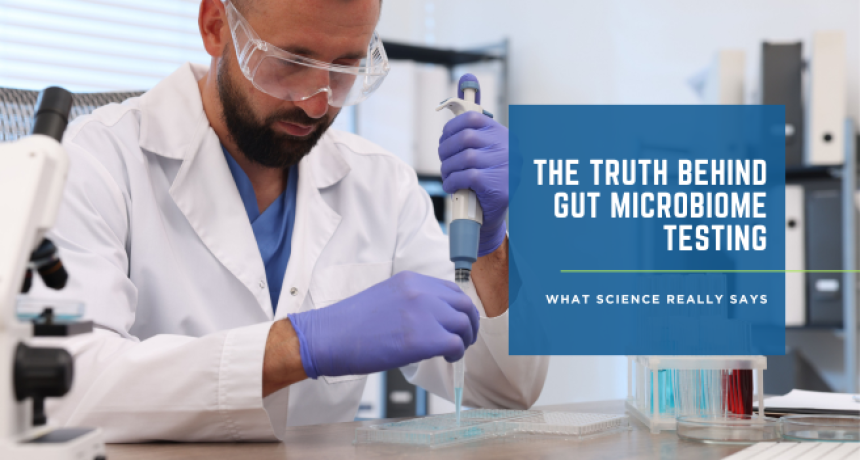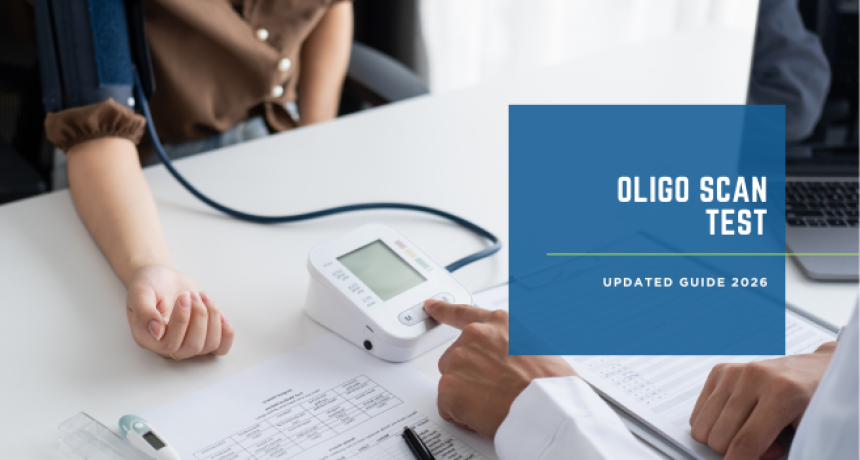Why You May Experience Chest Pain After Eating: Causes & Solutions
2025-05-20 Key Takeaways Not all chest pain is heart-related; digestive causes are common. Conditions like GERD, acid reflux, and bloating can mimic cardiac pain. Lifestyle changes, personalized diets, and gut restoration can resolve non-cardiac chest pain. L&B Clinic specializes in uncovering root causes of digestive chest pain through integrative care. Introduction Chest pain can be terrifying — and understandably so. It's often associated with heart attacks, triggering immediate panic. But here’s a lesser-known truth: not all chest pain is cardiac. In fact, a significant number of cases turn out to be gastrointestinal in origin. From esophageal spasms to acid reflux, digestive disorders frequently manifest as chest pain. This kind of pain is called "non-cardiac chest pain" (NCCP) and can be just as intense, confusing, and recurring. According to a 2022 review published in The American Journal of Gastroenterology, up to 60% of non-cardiac chest pain cases are linked to gastroesophageal reflux disease (GERD). Recognizing and treating these issues properly can not only ease symptoms but also prevent misdiagnosis and anxiety. In this article, reviewed by Dr. Deepika Krishna at L&B Clinic, we explain why digestive disorders can cause chest pain, how to tell the difference, and how to treat the root causes naturally. Non-cardiac chest pain refers to discomfort or pain in the chest that mimics heart-related pain but originates from a non-cardiac source — often the esophagus or digestive system. GERD (Acid Reflux): Acid backs up from the stomach into the esophagus. Esophageal Spasms: Sudden contractions of the esophageal muscles. Hiatal Hernia: When part of the stomach pushes into the chest cavity. Indigestion and Gas: Can lead to pressure buildup, causing sharp or tight sensations. Functional GI Disorders: Like esophageal hypersensitivity or motility disorders. Chest Pain vs. Heartburn: Knowing the Difference It’s crucial to differentiate between cardiac and digestive chest pain. If in doubt, always rule out cardiac causes first. Once cardiac causes are excluded, digestive roots must be investigated. See Also: Is Gas Giving You Chest Pain? Here’s What You Should Know Stomach acid irritates the esophagus, which lacks a protective lining. This inflammation causes burning or tightening in the chest. Disrupted or uncoordinated muscular contractions of the esophagus mimic angina (heart pain). Trapped gas can put pressure on the diaphragm, causing referred pain in the chest area. This structural issue can lead to chronic reflux, pain, and breathlessness. A heightened sensitivity in the GI tract (common in IBS or functional disorders) can exaggerate minor discomfort into sharp chest pain. Burning sensation after meals Pain worsens when lying down Bloating and gas accompanying chest tightness Bitter or sour taste in mouth Pain that improves with antacids No radiation to arms/jaw (unlike heart-related pain) How L&B Clinic Approaches Chest Pain from Digestive Causes Our first step is to ensure the heart is not the cause. We collaborate with cardiologists to run ECG, ECHO, or stress tests if needed. Endoscopy for esophageal lining analysis Esophageal manometry (if spasms suspected) Gut microbiome testing and food sensitivity panels Advanced Gut Microbiome Test: Our cutting-edge diagnostics offer high-accuracy results that map your gut flora and reveal imbalances linked to reflux, bloating, and inflammation. This personalized insight allows us to create treatment plans that work at the root level — not just symptomatically. Check out: Best Gut Microbiome Tests of 2025: How to Choose the Right One Nutrition: Anti-reflux and anti-inflammatory diets Microbiome Rebalancing: Probiotics, herbs, and functional foods Breath Training: To reduce diaphragmatic tension and reflux triggers Postural Coaching: Especially for those with hiatal hernias or poor core support Lifestyle & Dietary Tips for Relief Eat smaller, more frequent meals Avoid lying down right after eating Eliminate trigger foods: caffeine, spicy food, fried items Sleep with head elevated by 6–8 inches Practice deep breathing and relaxation exercises Evidence-Based Natural Remedies Slippery Elm & Marshmallow Root: Mucosal soothers (PubMed ID: 27225515) Deglycyrrhizinated Licorice (DGL): Protects esophageal lining Melatonin: May help reduce esophageal sensitivity (PubMed ID: 17881603) Fennel Tea: Relieves gas pressure When to Seek Urgent Medical Help Sudden intense chest pain with sweating Pain radiating to arm, jaw, or shoulder Shortness of breath or dizziness Chest pain in those with diabetes or hypertension Expert Insight "Many patients come in fearing a heart issue, but the real problem is reflux or gut inflammation. At L&B, we help them heal by balancing the gut, not just treating symptoms." — Dr. Deepika Krishna, Founder, L&B Clinic FAQs 1. Can acid reflux cause chest pain? 2. How do I know if chest pain is from indigestion? 3. Can bloating cause chest pressure? 4. Is chest pain from digestive issues dangerous? 5. What tests are done to confirm it’s not the heart? Final Thoughts: Heal the Gut, Ease the Chest Chest pain doesn't always mean heart trouble. When digestion is off-balance — your gut can send alarm bells to your chest. At L&B Clinic, we look deeper. Our integrative protocols address inflammation, reflux, sensitivity, and stress — giving you lasting relief without long-term meds. Book a Gut-Heart Screening with L&B Clinic the expert gut care center in Delhi and discover the real reason behind your chest pain. References & Further Reading: The American Journal of Gastroenterology (2022) PubMed: 17881603, 27225515 Mayo Clinic: Non-cardiac chest pain resources Follow Us: Instagram | Facebook | YouTube | LinkedIn1. Acid Reflux and GERD
2. Esophageal Motility Disorders
3. Gas and Bloating
4. Hiatal Hernia
5. Visceral Hypersensitivity
Step 1: Rule Out Cardiac Issues
Step 2: Advanced Digestive Diagnosis
Step 3: Personalized Gut Healing Plan
Yes. It’s one of the most common non-cardiac causes of chest pain.
If it worsens after meals, improves with antacids, and doesn’t radiate.
Yes. Trapped gas can press against the diaphragm, mimicking heart discomfort.
It’s not life-threatening but should still be evaluated to prevent chronic damage.
ECG, ECHO, stress tests, and troponin blood tests.
Reviewed by: Dr. Deepika Krishna, Founder, L&B Clinic
.png)















